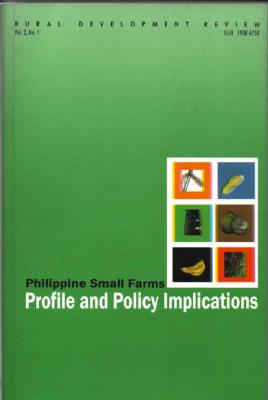
Can small farms contribute greatly to our economy? What can be done to empower them further?
To address these questions, and more, a non-government agency – Centro Saka, Inc. – conducted a Small Farms Survey. This is also to provide baseline data on the nature of small farmers and small-owner cultivators. It also presents information about small farmers` immediate environment.
Hence, the Centro Saka, Inc. hopes that the result of this survey could help concerned agencies in developing programs and projects for smallholder farmers and their communities. The study covered six major agricultural commodities – rice, corn, sugar, coconut, banana and rubber – because of their importance in the agricultural sectors. It examined the small-owner cultivators’ socio-demographics, land tenure patterns, land utilization, labor utilization, production related data, and incomes and costs.
According to Centro Saka, Inc., there is a need for more interventions to enhance the capability of the sector’s human resources. This study likewise reaffirms the ageing farmers’ population. More importantly, results show that farmers’ income are affected by many factors. Hence, addressing these requires specific interventions from the government and other civic groups, including farmers organizations and NGOs.
This book, the Rural Development Review is a monograph publication of the Centro Saka, Inc.. It engages in policy, research, policy advocacy, networking and likewise support people`s initiatives for agrarian reform and rural development. Its volume on the Philippine Small Farms Profile and Policy Implications is available at the Agriculture and Fishery Knowledge Center of the Agricultural Training Institute in Diliman, Quezon City.
